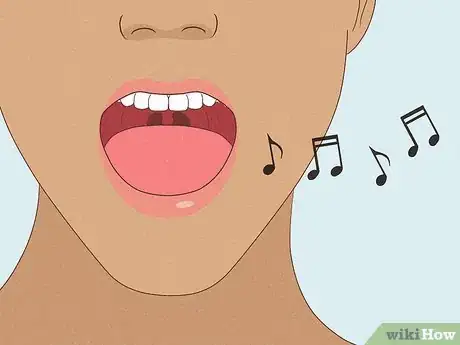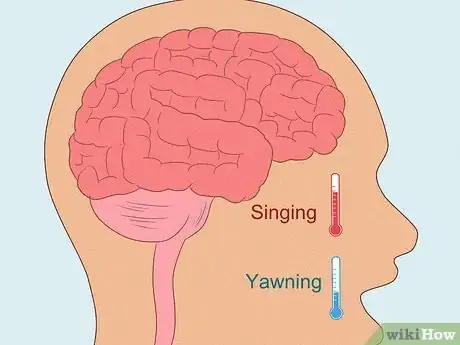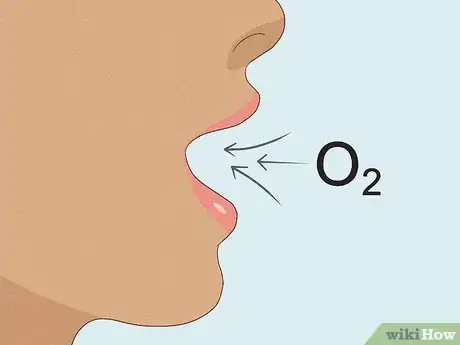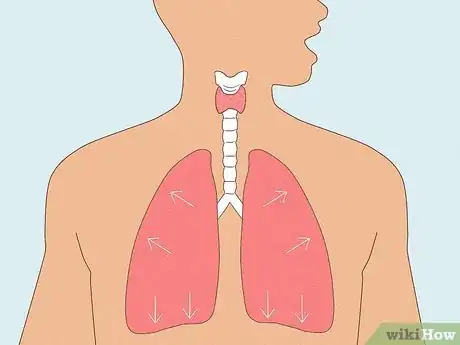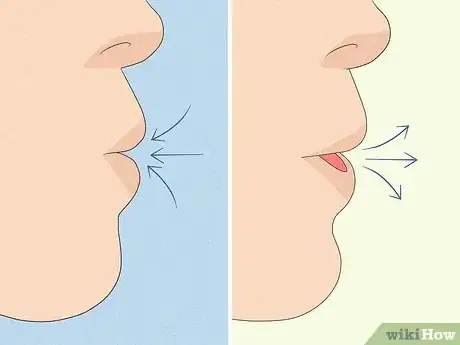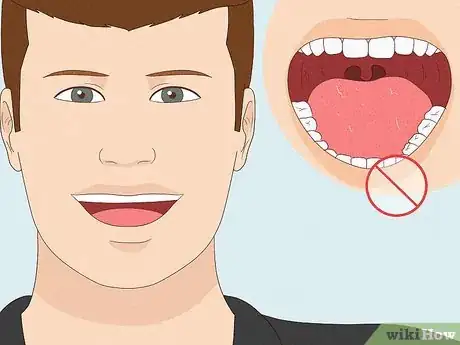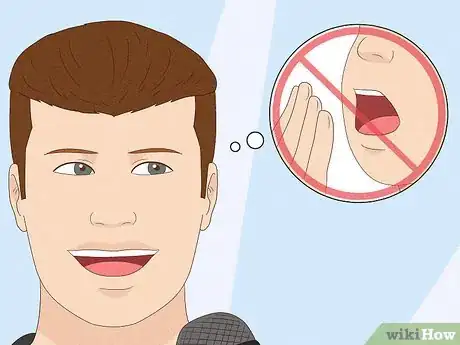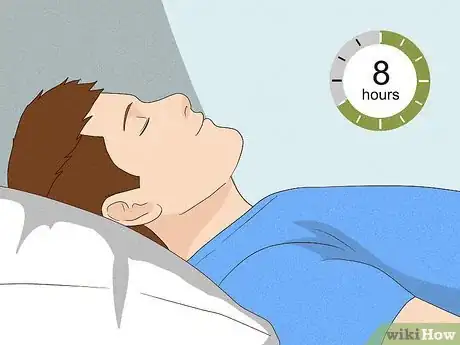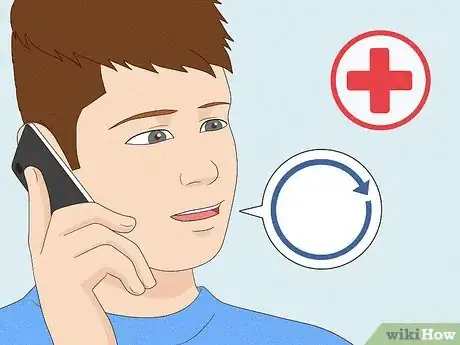This article was co-authored by Amy Chapman, MA and by wikiHow staff writer, Hannah Madden. Amy Chapman MA, CCC-SLP is a vocal therapist and singing voice specialist. Amy is a licensed and board certified speech & language pathologist who has dedicated her career to helping professionals improve and optimize their voice. Amy has lectured on voice optimization, speech, vocal health, and voice rehabilitation at universities across California, including UCLA, USC, Chapman University, Cal Poly Pomona, CSUF, CSULA. Amy is trained in Lee Silverman Voice Therapy, Estill, LMRVT, and is a part of the American Speech and Hearing Association.
There are 7 references cited in this article, which can be found at the bottom of the page.
This article has been viewed 12,988 times.
Picture this: you’re trying to practice your upcoming solo, but every time you open your mouth to sing, you yawn! You aren’t alone with this frustrating problem—surprisingly, yawning while you sing is pretty common. In this article, we’ve detailed the reasons why you probably can’t stop yawning while you sing as well as some techniques to stop this irritating issue.
Steps
Why Do I Yawn When I Sing?
-
1Yawning opens up your throat. When you sing, you hold your mouth and throat in a position very similar to a yawn (in fact, some singing teachers even recommend yawning as a vocal exercise).[1] Singing can make your body think that you need to yawn, so it will step in and take over, making you yawn a lot.
- This is especially true if you tend to hold your mouth open fairly wide as you sing.
-
2Yawning regulates your brain temperature. This is the leading theory about why we yawn in general, and it may help explain why you yawn when you sing. When you’re working hard or you’re performing under hot lights, your body temperature rises, which can warm up your brain. Your body will then automatically yawn to cool your brain down and improve your cognitive performance.[2]
- Scientists aren’t quite sure why exactly we yawn, but this theory has the most research behind it.
Advertisement -
3Yawning brings more oxygen into your bloodstream. When you sing, you probably aren’t breathing like you normally would. If you’re not getting enough oxygen in, your body might automatically yawn to take in more oxygen.[3] That’s why regulating your breathing during singing is so important!
-
4Yawning stretches and lubricates your lungs. You’re probably taking in much more air than usual when you sing. If you find that you can’t stop yawning, your body might be trying to help you out by stretching out your lungs and keeping them lubricated for more air flow.[4] It can be frustrating, but it’s your body’s way of trying to help!
- This might also be why yawning helps you feel more awake. Stretching out your lungs increases blood flow, which can improve cognitive function.
How To Stop Yawning While Singing
-
1Do a deep breathing exercise before you sing. This will help train your lungs to take in air as you sing.[5] The more breath control you have, the less your body will feel like it needs to yawn and take in more oxygen. You could try the straw phonation, an exercise where you sit up straight with your feet flat on the floor. Breathe in like you’re sipping through a straw, then slowly exhale out through your mouth.[6]
- You can also try the diaphragm exercise. Sitting up in a chair with good posture, place your hand on your stomach, then take a deep breath in. Focus on the air filling up your belly, then exhale out of your mouth.
- As with all breathing exercises, you shouldn’t ever hold your breath during these. Instead, breathe in and out at regular intervals to get enough air as you sing.
-
2Inhale quickly (and deeply) while you sing. You might be yawning because you’re not taking in enough air. If that’s the case, try to take quick, deep breaths whenever you can during a song. If you aren’t sure when the best time is, check in with your music teacher (if you have one)—they’ll be able to tell you when the song allows you to breathe.[7]
- Make sure you have enough breath before holding a long note, too. If you run out of air, you might start yawning in the middle of your song.
-
3Exhale quickly during song breaks. Holding one breath for too long could make you start yawning. Be sure you’re exhaling at a regular pace, and try to do it during pauses in between words or phrases. The more you can emulate “normal” breathing, the better.[8]
-
4Relax your jaw and throat while you sing. Holding your jaw too tensely could affect how you’re taking in air, which can lead to yawning. When you start singing, open up your mouth wide, but don’t force it open so far that it’s uncomfortable. Relax your throat, too, and try not to be too stiff.[9]
- It might actually be helpful to emulate a yawn when you start singing. The relaxed and open position of your throat and jaw is a perfect singing position.
-
5Try not to think about yawning. Just like when you see someone else yawning, you can catch a yawn just by thinking about one! Although it sounds counterintuitive, try really hard not to think about yawning when you’re singing. The more you can keep your mind off of it, the less chance you’ll have that you yawn.[10]
- Distract yourself by thinking about your singing form and which note you’re going to sing next.
-
6Get enough sleep the night before a performance. When you’re sleepy, you’re more likely to yawn often. If you have a performance coming up, try to get at least 8 hours of sleep beforehand.[11] Even taking a quick nap before you get on stage might help, as long as you give yourself enough time to wake up![12]
-
7Make an appointment with your doctor if you can’t stop yawning. In rare cases, uncontrollable yawning can be a sign of a medical condition. It might not be the case, but if you’ve noticed yourself yawning much more often than usual, make an appointment with your doctor to get checked out.[13]
- Yawning uncontrollably could indicate sleep apnea or narcolepsy.
References
- ↑ https://www.bbc.co.uk/sing/learning/warmingup.shtml
- ↑ https://www.houstonmethodist.org/blog/articles/2021/feb/why-do-we-yawn-and-are-yawns-really-contagious/
- ↑ https://www.houstonmethodist.org/blog/articles/2021/feb/why-do-we-yawn-and-are-yawns-really-contagious/
- ↑ https://kidshealth.org/en/kids/yawn.html
- ↑ https://musicaroo.com/why-do-i-yawn-when-i-sing/
- ↑ https://choralnet.org/2019/01/essential-breathing-exercises-for-your-choir/
- ↑ https://www.nats.org/Music_Theater_-_Resources.html
- ↑ https://www.nats.org/Music_Theater_-_Resources.html
- ↑ https://www.nats.org/Music_Theater_-_Resources.html
